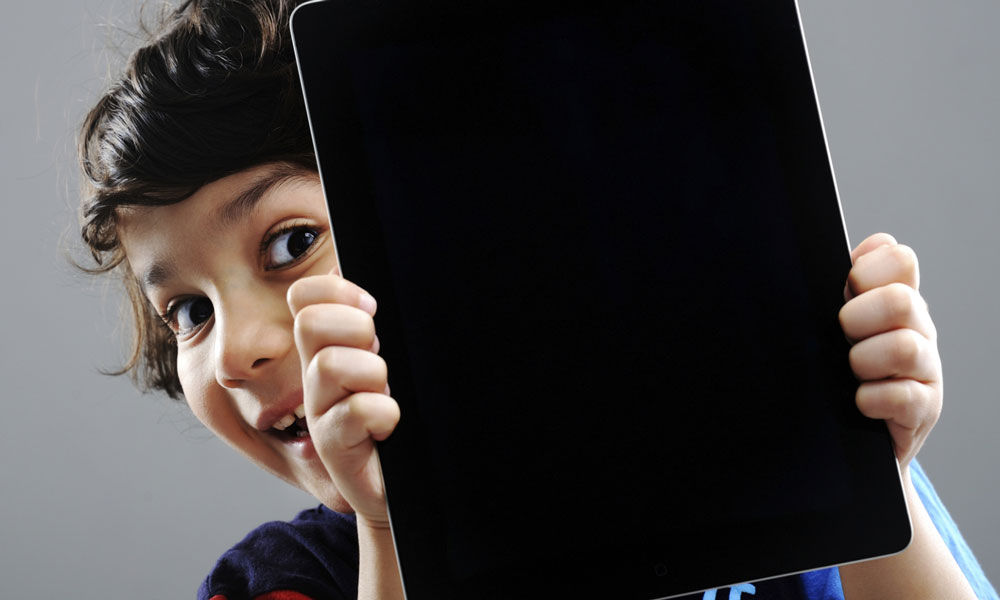
Survey: Technology Use Among Young Kids Is Skyrocketing
Children these days are learning to navigate an iPad almost before they know how to stand on their own two feet. The American Speech-Language-Hearing Association views that as a major problem.
Signs we live in the digital age: The typical two-year-old probably has a better handle on Candy Crush Saga than she does constructing a complete sentence to ask her parents for a piece of actual candy.
The image of a group of toddlers sitting apart, all engaged in their devices rather than playing together, isn’t some far-off notion.
That’s according to the results of a new survey of U.S. parents released last week by the American Speech-Language-Hearing Association (ASHA). The survey [PDF], which coincides with Better Hearing and Speech Month, found significant percentages of parents reporting technology use by children up to age 8. Of the 1,000 parents surveyed, 59 percent said their kids have access to tablet devices, 52 percent said their children use smartphones, and 52 percent said they use video game consoles.
And though technology use among young children is high, parents said they have concerns about excessive tech use: 77 percent agreed that misuse of technology can be harmful to young children, and 72 percent agreed that loud noise from devices can result in hearing loss.
Still, parents are opting for technology distractions to keep their children busy—more than half reported using technology to keep kids ages 3 and younger entertained—and ASHA believes the risks are far greater than parents realize.
“The image of a group of toddlers sitting apart, all engaged in their devices rather than playing together, isn’t some far-off notion,” ASHA President Judith L. Page, PhD, wrote in an article for USA Today. “We know intuitively, after all, that overuse of technology can translate to an underuse of speech and other forms of human-to-human communication. Anyone who has traveled by subway, walked through an airport, or, really, seen people in any public setting knows that adults live in their devices: ear buds in, heads down. The difference, though, is that we grew up without these devices—and that’s an important distinction.”
Children today are in uncharted waters, Page wrote. Groups like ASHA don’t have a complete understanding yet of technology’s impact on children’s development of their ability to communicate, whether it’s harming or helping. However, she said, there is no substitution for human interaction.
“The most rapid period of brain development takes place before age 3,” wrote Page. “During this time, the primary way young children develop their speech and language abilities is through human communication, something technology simply cannot duplicate. The less time they’re conversing, the less opportunity these children will have to develop strong speech and language skills.”
Technology has had many benefits, Page wrote. “But should devices come to rule our world—and starve our children of human interaction—society, and especially children, could well pay a terrible price in communication ability.”
(iStock/Thinkstock)






Comments